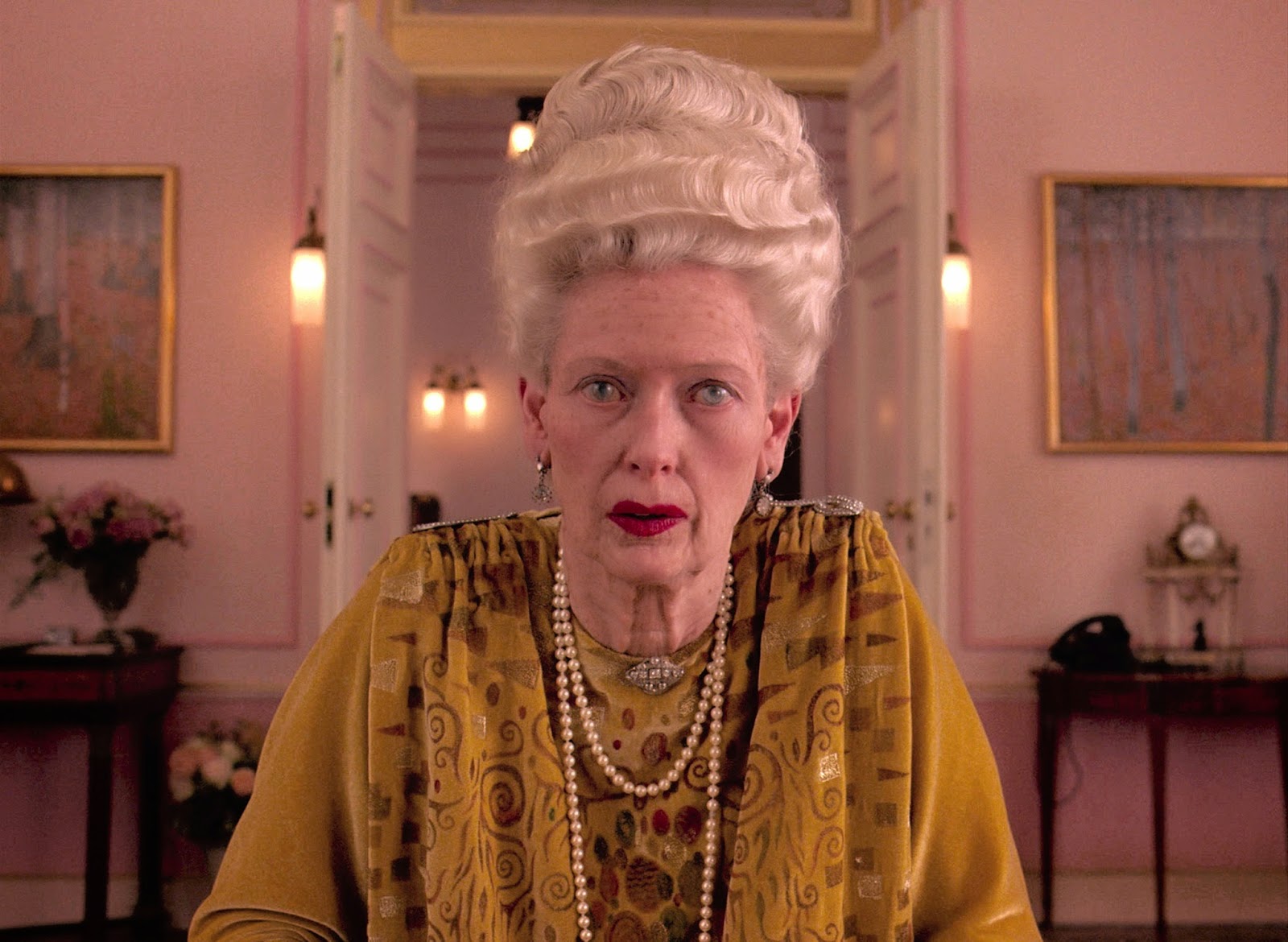 |
M. Gustave (Ralph Fiennes) in The Grand Budapest Hotel. |
By John Esther
Inspired by the writings of Stefan Zweig -- a middlebrow, middle class, Viennese, classically liberal author who was very popular throughout many parts of Europe and the U.S. in the 1920s and 1930s — the latest film by Wes Anderson (The Royal Tenenbaums; Moonrise Kingdom) follows the adventures of a cunning(lingus-t) concierge named M. Gustave (Ralph Fiennes) and his loyal sidekick, Zero (Tony Revolori), who must outwit robbers, a psychopath killer, and the law as 1930s Europe begins to fall prey to a sinister form of government.
The film opens up in a charming manner with Author (Tom Wilkinson) giving us viewers a lecture on where authors draw his or her source materials. To prove his point, he tells us the story about when he was a younger author (now played by Jude Law) and his encounter with Mr. Moustafa (F. Murray Abraham) during the final days of the titular hotel.
Now the owner of the hotel, Mr. Moustafa relates his story by flashing back to his first days at the hotel when he was a young man named Zero. During this time, the hotel was run by the greatest of concierges, M. Gustave (Ralph Fiennes). A Miranda Priestly, Cecil Gaines, and James Bond all rolled into one ubermensch, M. Gustave understood the needs and wants of every guest that stayed at this English-speaking hotel located in Eastern Europe. He demanded perfection from everyone, but most of all, himself. He was a marvel amongst men and Zero could not have asked for a better teacher. Along with the adoration from the proletariat immigrant Zero, nobody appreciated M. Gustave more than Madame D. (Tilda Swinton), a matriarch overseeing a vast fortune. M. Gustave was Madame D.’s most trusted confidante – in more ways than one.

Madame D. (Tilda Swinton) in The Grand Budapest Hotel.
The best film of Anderson’s film to date, The Grand Budapest Hotel is amusing and it looks spectacular – thanks to director of photography Robert Yeoman, production designer Adam Stockhausen, costume designer Milena Canonero and Frances Hannon, the hair, make-up and prosthetic designer. Sterile, worldly, ornate and whimsical like his other films, you got to hand it to Anderson, whatever his shortcomings are as a storyteller, he has a vision that is unique. Anderson has a distinct style.
The Grand Budapest Hotel is a fun film to watch; perhaps too fun. In his quest to recreate a nostalgic world, full of wonder and adorable characters, Anderson lacks the attack to go after bigger, more consequential ideals. While this is 1930s Eastern Europe, the Nazis are never mentioned by name. In another scene there is a shootout on a hotel floor; this could have been made into a satire on “stand your ground” and the expansion of concealed weapon laws in the U.S., but instead shoots itself into silliness. While in another scene, M. Gustave discusses the advantages of sex with older women, but the accompanying images are made for comical effect.
In addition to Abraham, Brody, Dafoe, Fiennes, Goldblum, Law, Swinton and Wilkinson, The Grand Budapest Hotel also features Mathieu Amalric as the important witness, Serge X, Edward Norton as the nice "Nazi", Henckels, Saoirse Ronan as Zero's love interest, Agatha, Jason Schwartzman as B-rate concierge, M. Jean, and a funny Harvey Keitel as Ludwig, a shirtless prisoner with twitchy muscles.
It is an impressive cast, but the casting begins to wear out its welcome toward the end when Bill Murray (M. Ivan), Bob Balaban (M. Martin) and Owen Wilson (M. Chuck) and others appear to play throwaway bit parts. Anderson aficionados may find this clever – an inside joke, I suppose; I found it distracting, if not crass.
However, to the credit of Anderson and some casting director on the film (there are many casting directors credited in the film), the filmmakers cast newcomer Revolori to fill a big role while working along with some very accomplished actors. Fortunately, Revolori holds his own as the unlikely orphan-turned-loyal lobby boy who would one day own a hotel.

